Disclosure: Meeple Mountain received a free copy of this product in exchange for an honest, unbiased review. This review is not intended to be an endorsement.
I adore ROVE: Results-Oriented Versatile Explorer, the solo spatial puzzle published by Button Shy back in 2021. I don’t play it often, but each time I do, I’m charmed anew. The combination of adorable illustrations and nesting puzzles makes for a brisk and deeply satisfying experience. Each of the numerous expansions adds something straightforwardly devious to the mix. The complete ROVE is a remarkably robust puzzle game, even setting aside its petite package.
Aqua ROVE is not, it bears clarifying, an expansion, though a module exists to combine the two. Designers Dustin Dobson and Milan Zivkovic have created a spinoff. ROVE, the little robot who could, can now complement his arduous journey across the surface of a strange planet with a dive into its even stranger ocean depths.
The basic idea remains the same. If you know how to play ROVE, you won’t be confused by its water-infused cousin, though there are some key changes.
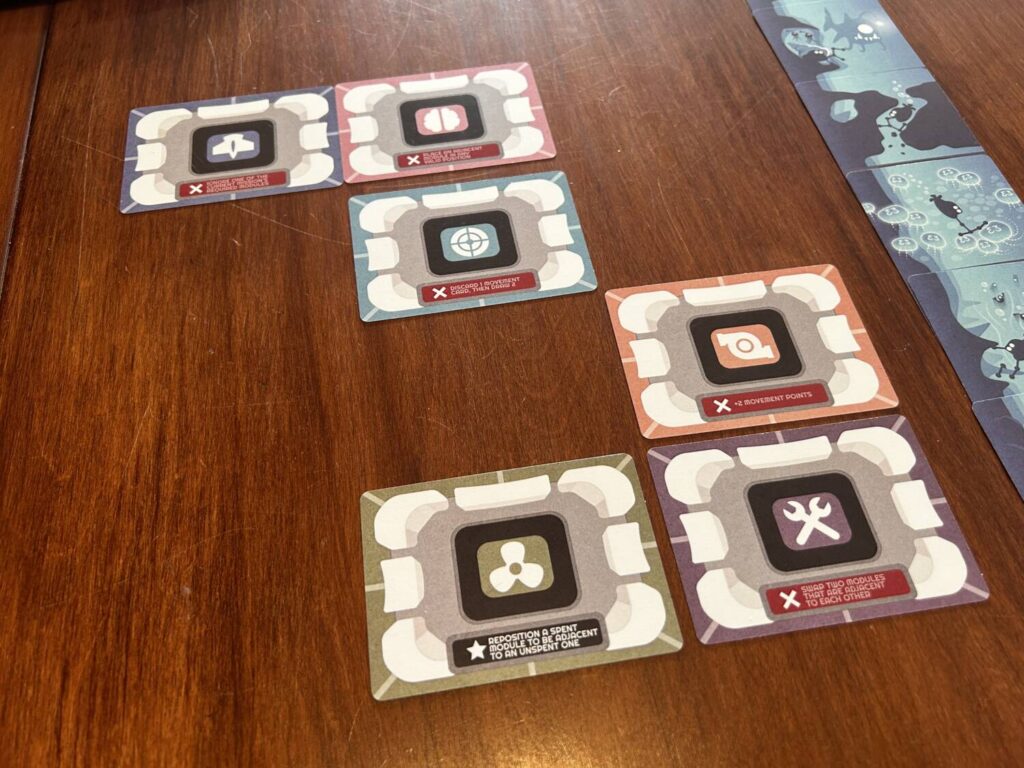
For the uninitiated, ROVE consists of six Modules, laid out in a 2 x 3 grid at the start of the game. You start a round—the game doesn’t formally divide itself into rounds, but they are conceptually convenient for describing it in this medium—by drawing a Mission Card from the top of the deck, which depicts a Pattern of Modules (Holy Capitalization, Batman!). Between you, me, and the whole of the Internet, I don’t like this use of the word “Pattern.” “Arrangement” feels more accurate. Your task is to use the movement cards in your hand to put the Modules into the positions indicated on the grid.
Movement is managed by judicious application of your Modules’ single-use abilities, which can come in clutch during a tight moment, and smart management of your limited hand of Movement Cards, which are found on the reverse side of the cards in the Mission Deck.
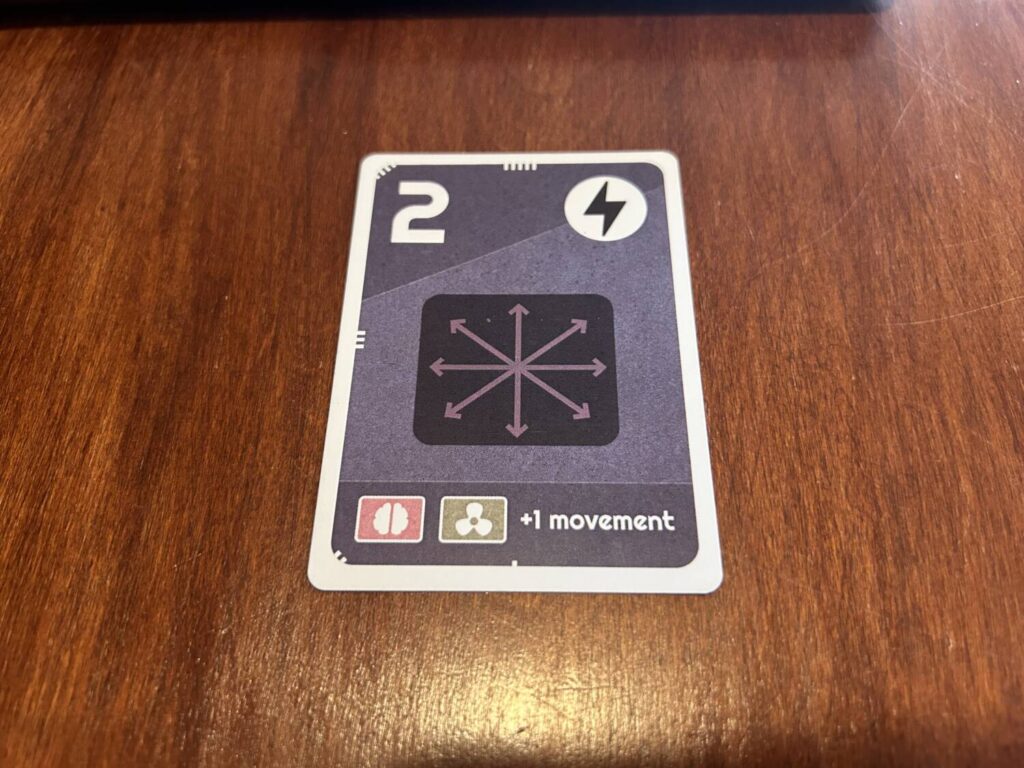
A Movement Card has three pieces of information on it. First, it indicates a given number of movement points, whicht tells you how many times you can move Modules using that card. Next, it shows you the type of movement permitted by the card. Longtime ROVErs will recognize these movement restrictions from the original game, though in that design the movement restrictions are inherent to each Module. The final bit of information, at the bottom of each card, indicates a pair of Modules. If those Modules are adjacent to one another when you play the card, you get an extra movement point.
The card economy in the ROVE family is tight. Planning your movements so you use as few cards as possible is central to the puzzle, and timing your card plays to maximize those bonuses is critical. While the decision to put movement restrictions on the Movement Cards instead of on the Modules seems to make Aqua ROVE more prone to the luck of the draw than the original design, the bonus system feels more forgiving. From my plays, they balance out.
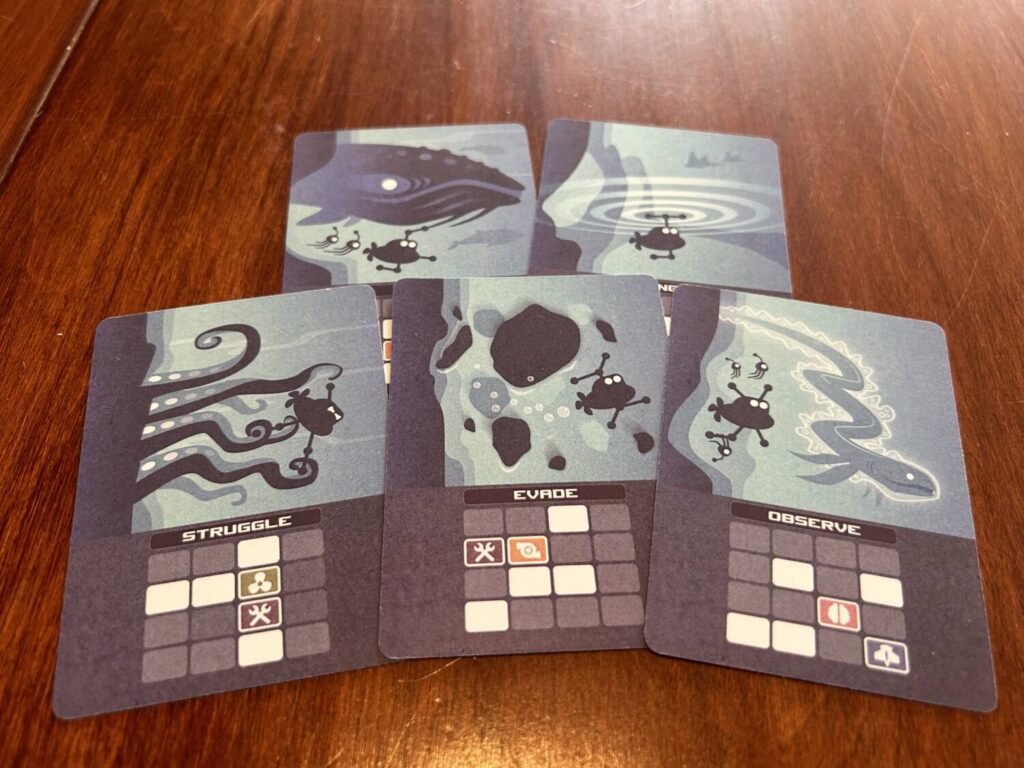
One of the things I love about ROVE as a system, equally true of both ROVE and Aqua ROVE, is the decision to have the next Mission Card visible. Each round, you’re not only figuring out the current puzzle, you’re also planning for the next one. You get to feel clever now and later you get to feel even more clever about having been clever a few minutes ago, when a few minutes ago was now. It’s all smart and cozy and clever and good and I like it very much.
The changes to Aqua ROVE strike me as net neutrals. Putting movement restrictions on the Movement Cards instead of on the Modules is a fun idea, but it has less of an impact on the game than I expected. It is the realization of a nifty counterfactual rather than a whole new experience. Is there any reason to play Aqua ROVE instead of ROVE? No, I don’t think there is.
That said, if you’re not someone who’s collected all of ROVE’s expansions (I highly recommend them), there’s also no reason to play the original instead of this. They’re similar to the point of being more or less interchangeable. ROVE is great. More ROVE is good. I only wish the waters were a little less familiar.
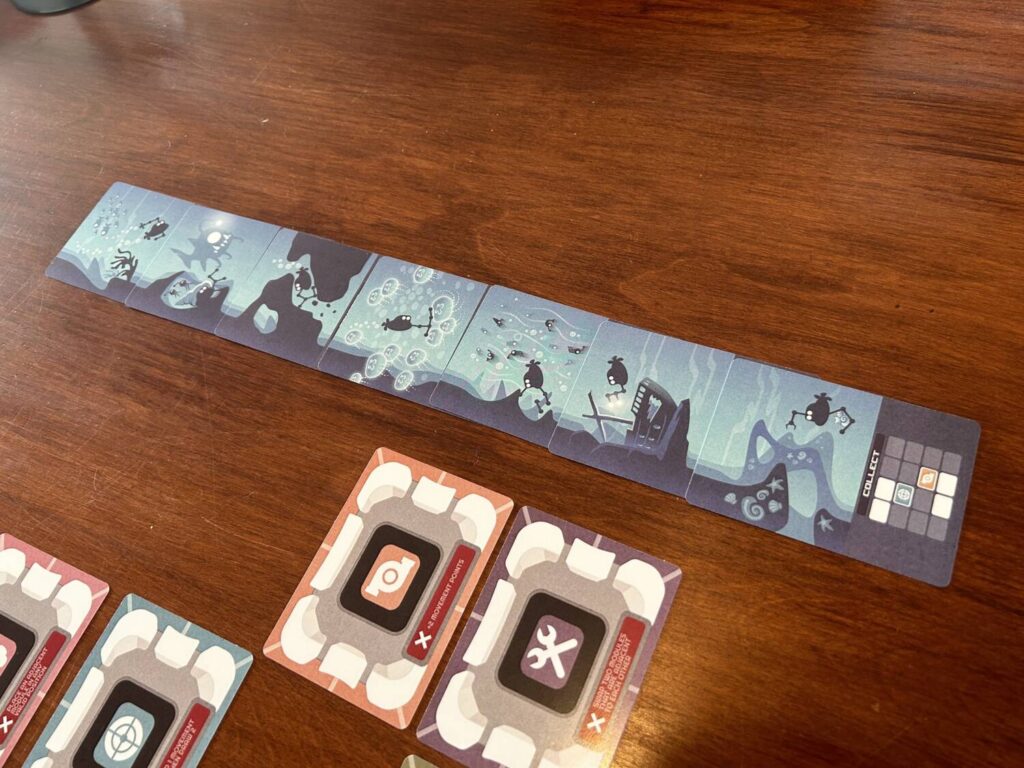


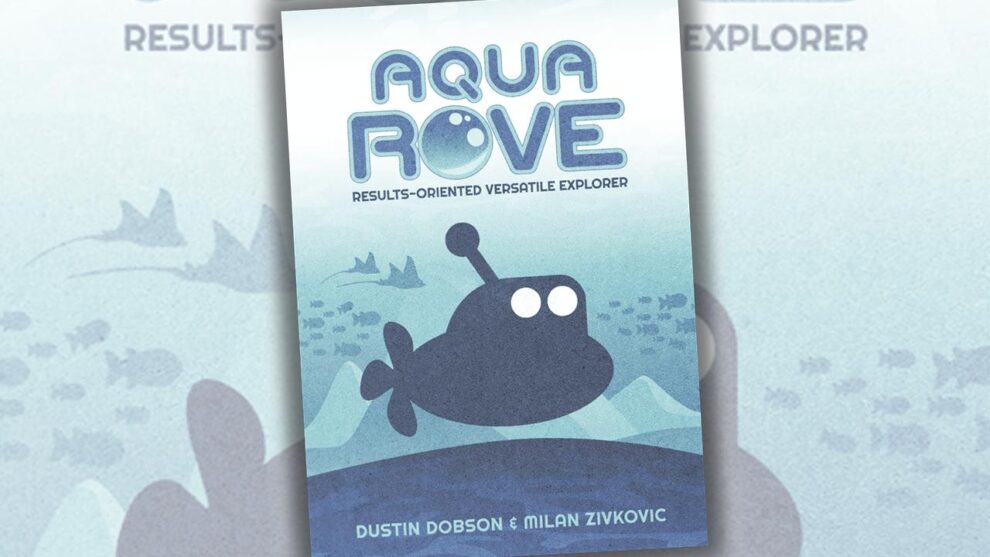








Add Comment